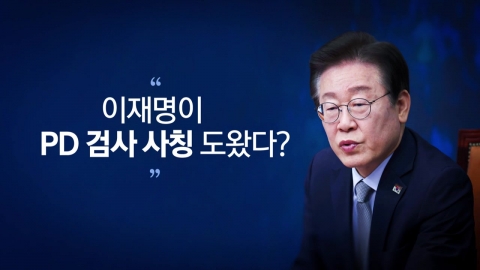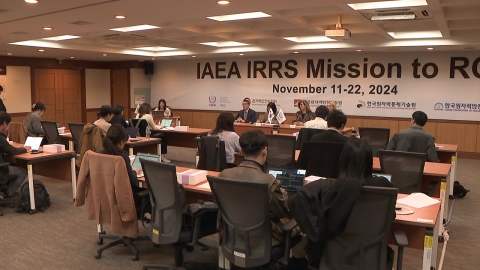The won-dollar exchange rate has not come down from the 1,400 won range due to bad news from Trump.
The foreign exchange authorities have started oral intervention again since April, fearing excessive volatility, but have not dampened the momentum of the exchange rate rise.
I'll connect you to a reporter for more information.
Reporter Lee Hyung-won, the exchange rate is not falling from the 1,400 won range, right?
[Reporter]
The won-dollar exchange rate started today above 1,400 won.
It was 3 won lower than yesterday, but it started at 1403.6 won.
Yesterday, it exceeded 1,411 won during the day, the highest in two years.
Today, it started down and slowed down, but it rose again,
It's moving around KRW 1,406 right now.
It continues to exceed the psychological Maginot line of 1,400 won.
[Anchor]
In the end, the foreign exchange authorities started oral intervention, right?
[Reporter]
Yes, a meeting on macroeconomic and financial issues was held today presided over by Deputy Prime Minister Choi Sang-mok.
At this meeting, there were remarks that they would take active measures against currency instability.
Choi expressed concern that uncertainties related to global economic growth, prices and monetary policy are present along with changes in the policy stance of the new U.S. government.
In response, he asked for active market stabilization measures to be implemented quickly if financial and foreign exchange market volatility expands excessively.
It gave a message that if the exchange rate continues to surge, it will intervene in the market.
This oral intervention is the first in seven months since April, when the exchange rate rose below 1,400 won due to political instability in the Middle East.
However, even after oral intervention, the exchange rate has not calmed down.
[Anchor]
Why has the exchange rate instability grown to the point that the government has stepped up?
[Reporter]
This is because the Trump administration, which will be officially launched in January next year, is advocating U.S. priority.
As it has vowed to raise trade barriers, including higher tariffs,
This is because trade disputes and high price concerns have increased due to the implementation of these policies.
If this happens, the U.S. will also have no choice but to adjust the pace of the base rate cut.
The won's price is falling due to this uncertainty.
In addition, the "Trump Trade," which attracts investments in dollars, U.S. stocks, and virtual assets, which are expected to benefit from Trump's presidency, is also a negative factor.
[Anchor]
Our stock market was also on the decline, but it rebounded today, right?
[Reporter]
Yes, we started on an upward trajectory.
The KOSPI opened 0.55% higher at 2,430.26.
It stopped falling for the fourth day and rebounded.
Samsung Electronics, which had been threatened with 50,000 electronics, also rose for the first time in a long time to the 50,000 won range.
However, foreigners are still selling in our market, so we have to wait and see the trend.
At this time, the KOSPI has decreased its rise and is going up and down in the 2,420s.
KOSDAQ also opened at 694.16, up 0.65%.
Currently, it is moving around 690.
So far, I'm Lee Hyungwon of YTN on the Korea Exchange.
※ 'Your report becomes news'
[Kakao Talk] YTN Search and Add Channel
[Phone] 02-398-8585
[Mail] social@ytn.co.kr
[Copyright holder (c) YTN Unauthorized reproduction, redistribution and use of AI data prohibited]
Economy
More- Gas station gas prices have risen for six weeks in a row..."I think it's going to fall slightly next week."
- Overseas Travel Card Stolen Warning "Set safe in advance!"
- I changed the sign and refurbished it.Construction Industry Brand Differentiation Competition
- November 22nd is Kimchi Day... "Supporting sustainable growth of the kimchi industry."

![[Reporting Y] "Light" is right in front of the exam.a massive cancellation of qualifications](https://image.ytn.co.kr/general/jpg/2024/1123/202411230506345528_h.jpg)


![[Yetterview] "University War Season 2" The True Taste of Brain Survival Overcrowding Controversy](https://image.ytn.co.kr/general/jpg/2024/1123/202411230900011387_h.jpg)
![[YTERVIEW] "The best song is 'Dreams of Octopus'". Thank you, children".](https://image.ytn.co.kr/general/jpg/2024/1123/202411230800271881_h.jpg)



